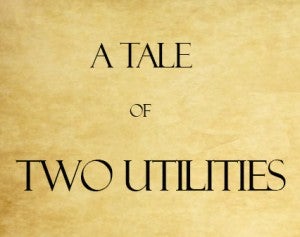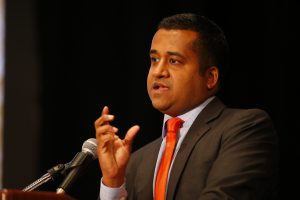 Talk about a disruptive technology. The “world’s leading software platform for digital assets,” blockchain may be little known, but it could revolutionize electricity markets.
Talk about a disruptive technology. The “world’s leading software platform for digital assets,” blockchain may be little known, but it could revolutionize electricity markets.
What is blockchain?
Blockchain, in short, is a secure, decentralized, and highly efficient way to manage and keep track of infinite transactions. Rather than being stored on a central server, peer-to-peer transactions are replicated across a number of computers, creating a data store that records exchanges in almost real time. To ensure the transactions are secure, authenticity and identity are maintained through cryptography and digital signatures.
Bitcoin – perhaps the most-recognized blockchain application – already is challenging conventional money exchangers. According to Cambridge University researchers, almost 6 million people use this cryptocurrency in order to make electronic peer-to-peer transactions without an intermediary such as a bank. And because blockchain technology is decentralized and accessible from multiple locations, Bitcoin funds can’t be frozen, withheld, seized, or taken.
New electricity opportunities
When it comes to electricity, blockchain could offer a reliable, rapid, and low-cost means to record and validate financial and operational transactions. These transactions could include selling and buying electricity – again without an intermediary, in this case the incumbent utility monopoly. In light of the rapid rise of distributed (decentralized) energy resources like batteries and solar panels, some analysts even believe the market for blockchain applications is significantly larger in the energy sector than for financial services. Read More »
 Crain’s Cleveland Business first published this op-ed on July 16, 2017.
Crain’s Cleveland Business first published this op-ed on July 16, 2017. 









 Energy Exchange published an original version of this post in July 2016. This post updates the original to reflect recent developments in Illinois.
Energy Exchange published an original version of this post in July 2016. This post updates the original to reflect recent developments in Illinois.
 Energy Secretary Rick Perry’s
Energy Secretary Rick Perry’s  Talk about a disruptive technology. The “world’s leading software platform for digital assets,” blockchain may be little known, but it could revolutionize electricity markets.
Talk about a disruptive technology. The “world’s leading software platform for digital assets,” blockchain may be little known, but it could revolutionize electricity markets.